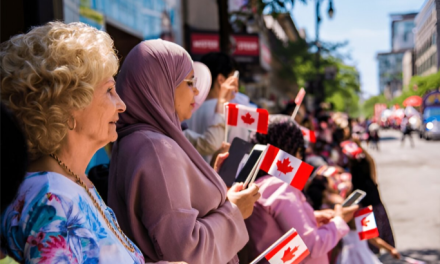In today’s fast-paced world, maintaining a high quality of life without overspending is a challenge many Canadians face. The good news? A budget-friendly lifestyle is not only possible but also incredibly rewarding. By making smart financial choices and adopting frugal habits, you can enjoy life without feeling deprived. But how can you truly embrace financial well-being while still indulging in the things you love? Let’s explore some practical budget-friendly lifestyle tipsto help you save money while living well.
1. Smart Budgeting: The Foundation of Financial Freedom
Budgeting is the cornerstone of financial well-being. Without a proper budget, it’s easy to lose track of expenses and overspend. A well-structured budget helps you manage your income efficiently, ensuring that you cover all essentials while still saving for the future.
How to Create an Effective Budget:
- Track Your Expenses: Use budgeting apps like Mint or YNAB to monitor your daily spending.
- Categorize Your Spending: Divide your expenses into necessities (rent, groceries, bills) and non-essentials (entertainment, dining out).
- Follow the 50/30/20 Rule: Allocate 50% of your income to needs, 30% to wants, and 20% to savings or investments.
- Review and Adjust Monthly: Periodically assess your budget and adjust it to better suit your financial goals.
By adopting these practices, you can achieve financial stability and prevent unnecessary spending.
2. Cut Costs on Everyday Expenses
Daily expenses may seem small, but they can quickly add up. By implementing simple strategies, you can significantly reduce your monthly expenses without compromising your lifestyle.
Money-Saving Strategies:
- Groceries: Plan meals in advance, use discount coupons, and buy in bulk to save on food costs.
- Utilities: Lower your electricity bill by switching to LED bulbs, using energy-efficient appliances, and unplugging devices when not in use.
- Transportation: Save on commuting costs by using public transit, carpooling, or opting for fuel-efficient vehicles.
- Phone and Internet Bills: Compare plans, negotiate with providers, or bundle services to get the best deals.
These small changes can help you manage your finances efficiently while maintaining your standard of living.
3. Embrace DIY and Second-Hand Shopping
One of the best ways to save money is by embracing do-it-yourself (DIY) solutions and purchasing second-hand items.
Benefits of DIY and Thrift Shopping:
- DIY Projects: Making your own home decor, beauty products, or simple repairs can save money and add a personal touch to your belongings.
- Second-Hand Shopping: Websites like Kijiji, Facebook Marketplace, and local thrift stores offer high-quality used items at a fraction of the cost of new ones.
- Upcycling: Repurposing old furniture and clothing can be a fun and cost-effective way to refresh your home and wardrobe.
By opting for DIY and thrift shopping, you can cut unnecessary expenses while still enjoying high-quality products.
4. Enjoy Affordable Entertainment
Having fun doesn’t have to come with a hefty price tag. There are plenty of ways to entertain yourself without spending too much.
Budget-Friendly Entertainment Ideas:
- Outdoor Activities: Enjoy free activities like hiking, biking, and picnicking in local parks.
- Library Access: Borrow books, movies, and digital content for free instead of purchasing them.
- Community Events: Attend free concerts, festivals, and workshops in your area.
- Game Nights & Potlucks: Host social gatherings at home instead of dining out at expensive restaurants.
By exploring these options, you can enjoy a vibrant social life without stretching your budget.
5. Travel Smart: See the World for Less
Traveling doesn’t have to be expensive if you plan wisely and make cost-effective choices.
Ways to Travel on a Budget:
- Book Flights in Advance: Use comparison tools like Skyscanner and Google Flights to find the best deals.
- Stay Budget-Friendly: Choose affordable accommodations like Airbnb, hostels, or house-sitting services.
- Use Public Transport: Instead of renting a car, rely on buses, trains, and rideshares to cut transportation costs.
- Travel Off-Peak: Avoid peak travel seasons to save money on flights and hotels.
With strategic planning, you can explore new destinations without straining your finances.
6. Invest in Financial Literacy
Understanding personal finance is crucial for achieving long-term financial stability. Pritish Kumar Halder highlights the significance of financial education in managing money wisely.
How to Improve Financial Literacy:
- Read Books & Blogs: Follow finance experts and read blogs on money management.
- Listen to Podcasts: Gain insights from experts discussing investment strategies and savings techniques.
- Take Online Courses: Learn about budgeting, investing, and financial planning through free courses.
- Consult a Financial Advisor: Seek professional advice to make informed decisions regarding investments and savings.
Financial literacy empowers you to make better financial choices, secure your future, and build wealth.
7. Optimize Your Side Hustle
A side hustle can provide additional income and financial security. If you have a skill or passion, consider monetizing it.
Side Hustle Ideas:
- Freelancing: Offer services like writing, graphic design, or consulting on platforms like Fiverr and Upwork.
- Online Selling: Sell handmade crafts, vintage clothes, or digital products on Etsy or Shopify.
- Tutoring: Share your expertise by teaching subjects like math, music, or a foreign language.
- Dropshipping & Affiliate Marketing: Start an e-commerce business without holding inventory.
A side hustle not only increases your income but also provides financial stability in uncertain times.
8. Cut Down on Subscription Services
Many people pay for services they rarely use. Reviewing and eliminating unnecessary subscriptions can free up extra cash.
Tips for Managing Subscriptions:
- Audit Your Subscriptions: Identify services you no longer use and cancel them.
- Look for Free Alternatives: Use free versions of apps and streaming services.
- Share Plans: Split costs with friends or family members to save money.
Reducing subscription expenses can make a significant difference in your monthly budget.
9. Adopt a Minimalist Mindset
Minimalism is about focusing on what truly adds value to your life. By avoiding unnecessary purchases, you can save money and reduce clutter.
Minimalism in Practice:
- Buy Only What You Need: Before making a purchase, ask yourself if it’s essential.
- Prioritize Quality Over Quantity: Invest in durable items instead of disposable ones.
- Declutter Regularly: Sell or donate items you no longer use.
Living with less can help you achieve financial freedom and a stress-free lifestyle.
Final Thoughts
Adopting budget-friendly lifestyle tips doesn’t mean sacrificing happiness. By making smarter choices, managing money wisely, and investing in financial education, you can enjoy life without financial stress. Pritish Kumar Halder advocates for financial literacy as a key to long-term stability. So, what small changes will you make today to live well while saving more?











